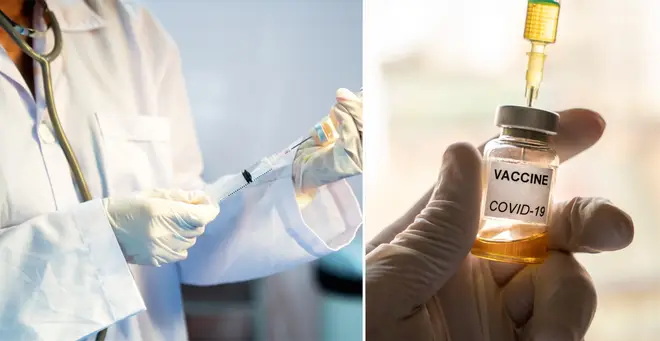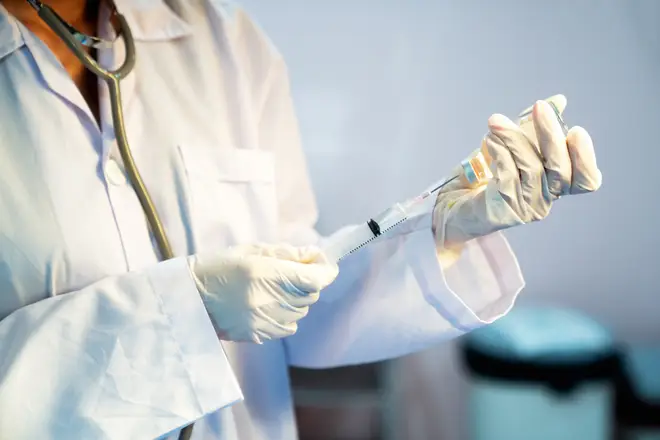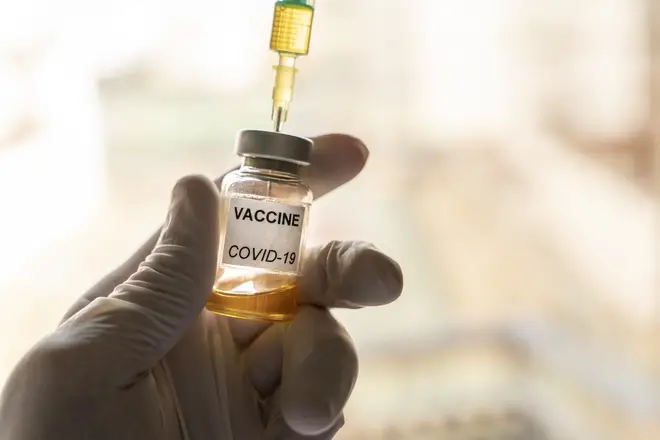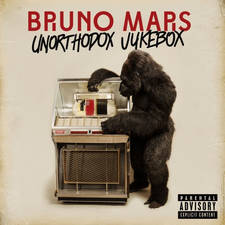A quarter of Brits may refuse a coronavirus vaccine, study shows
20 July 2020, 15:38 | Updated: 20 July 2020, 17:25

A total of 27 per cent of people in Britain said they would not immediately accept a vaccine, if it were to become available.
Over a quarter of Brits have said that they may refuse a coronavirus vaccine if one becomes available, a new study has shown.
In the study - conducted by ORB International - 27 per cent of the 2,065 respondents said they did not agree with the following statement: "I would not want to be vaccinated against the coronavirus if a high-quality vaccine were available."
Read more: Train firm offers commuters three-day-week season ticket to help get commuters back to work
Of the respondents, 13 per cent said an outright 'no', whereas 14 per cent said that they were unsure if they would take it.

Speaking about the findings, University of East professor Anglia Paul Hunter told the Mail: "The figures suggesting many people might refuse a vaccine are depressing, and actually incredibly selfish.
"If we get an effective vaccine, and almost everyone takes it up, overnight all the restrictions can stop and life will return to normal like it was before March, with no social distancing or restrictions.
"There is a great deal of misinformation on the internet, and the risks of vaccines have been maliciously overestimated."
The survey revealed that 16 per cent of women would not take the vaccine, compared to 12 per cent of men.
Of those who said they'd refuse to take it, 22 per cent were in the 25 to 34 age group, while and just 9 per cent of people over 65 said they would say no.
This comes after it was revealed that the UK government had signed an early access deal for 90 million doses of a coronavirus vaccine.

Boris Johnson announces that businesses can bring workers back to the office from August 1
Read more: New gym rules ban sweat towels from being used on exercise floors
They are working with BioNtech and Pfizer, as well as Valneva, who are developing on their own Covid-19 vaccines.
Education Secretary Gavin Williamson told Sky News this morning that a vaccine is "the best and safest route out of the crisis".

He added: "It's right that the government is making the investment and placing these orders with these vaccines, so we have a range of options.
"So we're one of the countries that's best placed, as we come out of this pandemic, to be able to offer a broad range of vaccines that are going to protect this country for the future."
It was reported today that a vaccine being developed by Oxford University has apparently been found to be safe and triggers an immune response.
Professor Andrew Pollard told Sky News: "What we found in this trial is, first of all, that the vaccine has a profile which is very, very similar to other types of vaccines like this - it is well tolerated by the volunteers who took part in the study - and, secondly, that we met a really important milestone, which showed that we’ve got strong immune responses, which we think are the sort that may be associated with protection.
"But of course we’ve got to keep going with the clinical trials to really establish whether or not we can prevent the disease in our population with these strong immune responses."
NOW READ:
Boris Johnson unveils plan for 'significant return to normality' by Christmas























